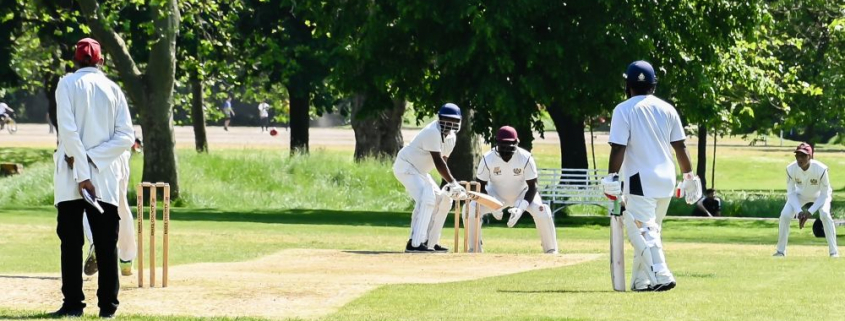Is English cricket racist, and is much more EDI needed?
A lifelong England cricket fan considers the recent report of the Independent Commission on Equity in Cricket, ahead of the formal response from the England and Wales Cricket Board (ECB). The author prefers to remain anonymous.
A widely publicised report published on 26 June 2023 by the Independent Commission on Equity in Cricket (ICEC) declared that English cricket is racist, sexist and classist. Is this a fair assessment, and are ICEC’s 15 pages of recommendations likely to leave the game in a better place? These are the reflections of a lifelong cricket fan, who is not involved in the administration of the game.
ICEC was established by the England and Wales Cricket Board (ECB) following various allegations of racism in English cricket that emerged in the wake of the Black Lives Matter protests in 2020, most notably the claims made by Azeem Rafiq about his treatment by Yorkshire County Cricket Club. Cindy Butts, a former Labour party researcher and EDI advocate, was appointed to chair ICEC. ECB left it to her to appoint four fellow commissioners, who unsurprisingly shared her ‘progressive’ viewpoint – one which is held by about 15 per cent of British people, according to polling carried out by Professor Matthew Goodwin.
Diversity of thought is notably absent from the ICEC report, which is permeated by EDI orthodoxy, to the extent that the term EDI features 42 times in their recommendations. ICEC call their report Holding Up a Mirror to Cricket. Unfortunately, it is a mirror distorted by the opinions of the commissioners.
ICEC asserts at 6.3.13 ‘The evidence is unequivocal that racism is a serious issue in cricket.’ However, the main evidence they provide comes from an online survey which was explicitly designed to elicit ‘people’s lived experiences and direct evidence of discrimination or unfair treatment across the professional or recreational game and within cricket’s talent pathways’. Disturbing experiences were reported by some of the 4,500 people who chose to respond, together with complaints about stereotyping and feeling undervalued. But we simply cannot know how representative they are of the 1.2million adults who play the game, or of the 360,000 to 420,000 adults from ethnically diverse communities who are involved in recreational cricket; just 855 of them responded to the survey.
It is a shame that ICEC chose not to survey a representative sample of the latter. Instead, they simply assumed, with no supporting evidence, that the experiences reported by the online survey respondents reflect what is happening in English cricket more broadly. ICEC leaves us no better informed about the real extent of English cricket’s race problem.
The same lack of rigour was displayed by the Department of Culture, Media and Sport (DCMS) Select Committee in its brief 2021 enquiry into racism in cricket. Azeem Rafiq’s evidence was given a very sympathetic hearing, but the Committee made no serious effort to hear from those who disputed Rafiq’s allegations. When the most serious of these allegations were subsequently investigated in detail by the ECB’s Cricket Discipline Commission, 11 of the 26 charges were found to be ‘not proved’, including the most high-profile allegation made against former England captain Michael Vaughan.
Also, at 6.3.13, ICEC claims that ‘the strong evidence of inequitable outcomes highlighted in our Chapter 4, State of Equity in Cricket demonstrate that institutional and structural racism continue to shape the experience of, and opportunities for, many in the game.’ This illustrates the ICEC’s mindset. The truth is that, as the 2021 report of the Commission on Race and Ethnic Disparities showed, unequal outcomes cannot of themselves demonstrate racism; there may be many other factors at play.
ICEC seeks to impose EDI dogma, with a heavy hand, on English cricket. For example, recommendation 20d is that a requirement should be placed upon counties, backed up by ECB sanctions, to improve the diversity and inclusivity of county memberships, focusing particularly on ethnicity, gender and class/socio-economic status, with targets based on each county’s demographic. ICEC seem not to understand that membership is a matter of individual choice, and that members may not wish to be categorised by ethnicity or social class. The recommendation conjures up the grotesque prospect of membership applicants being turned away because they belong to an ethnic group, gender or social class that is already over-represented from ICEC’s point of view.
While equity, diversity and inclusion are all desirable in themselves, EDI as preached by the likes of ICEC is an ideology, and ICEC’s recommendations would create a bureaucratic nightmare which would surely drive many volunteers away from involvement in cricket. The recent Coutts debanking imbroglio demonstrates how easily the good intentions of institutions in adopting apparently benign policies like EDI can produce malign outcomes, such that inclusivity becomes an excuse for excluding those whose opinions the institution does not like. ECB have undertaken to respond to the ICEC report within 100 days – that is, by early October. They have already issued a blanket apology for discrimination, and have recently accepted ICEC’s recommendation to raise match fees for England’s women players to the same level as England’s men – a well-meaning gesture which ignores the fact that the revenues raised by men’s cricket are many times higher than those raised by the women’s game. For the sake of the future of English cricket, following an epic Ashes series which caught the imagination of people across the country, one can only hope that ECB resist ICEC’s divisive proposals to tie the game up in a thicket of new EDI rules, roles and regulations.


